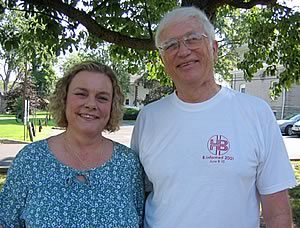
The hepatitis B community recently lost its much-loved advocate, resource and “mom,” Sheree Martin. She was co-owner of the Hepatits B Information and Support List from 1998 to 2011 and comforter and consultant to thousands of people around the world who live with hepatitis B.
The reach of her kindness and wisdom cannot be under-estimated. In the early days of hepatitis B, when medical treatment was misguided and stigma ran rife, Sheree nurtured a safe, online community that provided reassurance and accurate medical information. For many, it was the first time they were able to share the confusion, loneliness and frustration of living with chronic hepatitis B with people just like them. Continue reading "The Hepatitis B Patient Community Loses Its “Mom”"



